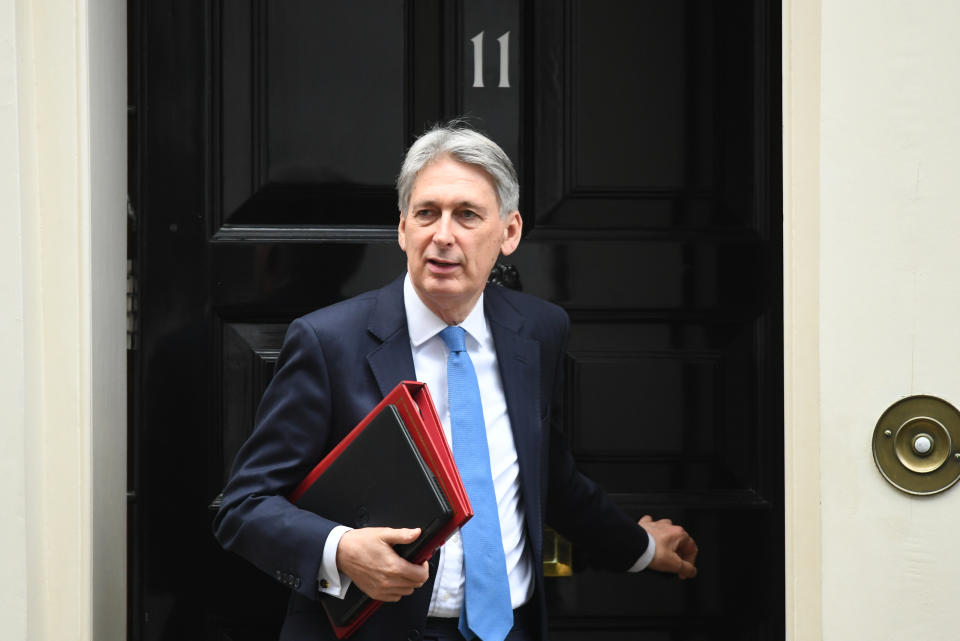Hammond says government could delay Brexit to avoid no deal

The UK government could delay Brexit to avoid a catastrophic no-deal scenario, according to reports.
Chancellor Philip Hammond is understood to have reassured businesses after Theresa May’s Brexit deal was voted down by parliament in a crushing defeat last night.
He told business leaders on a private conference call last night that parliament could vote next week on a plan to push back the UK’s March 29 exit date.
The Financial Times reports that Hammond made clear the government would not put “obstacles” in the way of a controversial amendment that could delay Brexit and even see a cross-party group of MPs take charge of finding a deal.
“There is a large majority in the Commons that is opposed to no deal,” the chancellor is said to have told firms.
READ MORE: How Britain is on the cusp of another general election over Brexit
The amendment by Conservative former minister Nick Boles would give the government a three-week deadline to find their own solution. But if May failed to find a compromise she could get through parliament, it would fall to the Commons liaison committee, made up of select commitee chairs, to work out a Brexit plan acceptable to MPs.
Hammond’s comments may help explain the pound’s recovery despite MPs’ resounding rejection of the government’s plans, with Bank of England governor Mark Carney saying this morning that markets believe Article 50 could be extended.
The chancellor appeared to be trying to alleviate companies’ fears of the UK leaving without any agreement in March, which official forecasts suggest could wipe 8% off GDP in a year.
Carolyn Fairbairn, director general of the UK’s biggest business group the Confederation of British Industry (CBI), had issued an impassioned plea for the government to rule out a no-deal scenario altogether last week.
“If parliament can’t agree then it is for the government immediately to set out what it will do to avert a no-deal exit, and to guarantee this,” she said.
READ MORE: The pound has recovered after a volatile night – here’s where it could go next
The prospect of a no-deal Brexit still appears to be worrying many firms, as some government ministers remain convinced the UK must be prepared to walk away if it wants to obtain more concessions from the EU.
Steve Varley, chair of EY UK, told the Financial Times: “Based on advice from the chancellor on a briefing call tonight we will continue to advise our clients to plan for a no-deal Brexit.”
Andrew Gray, head of Brexit at PwC, said after last night’s vote: “Until a way through can be found, it is important to remember that ‘no deal’ is the default outcome.
“We’re advising organisations to urgently activate their no deal plans, while still preparing for both a deal and no deal outcome. The time to act is now.”
Chris Scicluna, head of economic research at Daiwa Capital Markets, said: “The evidence yesterday is that there is a quorum of MPs who will do what’s required to avoid a no-deal Brexit. So there’s a strong probability of an extension of Article 50 and that means there’s an increased probability of a softer Brexit or no Brexit at all.”

 Yahoo Finance
Yahoo Finance 